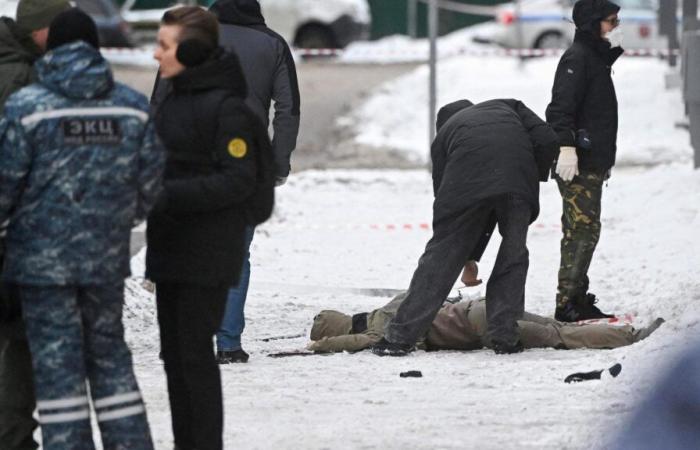LONDON – The general Igor Kirillovhead of the Russian nuclear, chemical and biological forces, was assassinated in Moscow on his doorstep in an explosion that also killed one of his assistants. He is the highest-ranking officer to die in an attack in Russia since the invasion of Ukraine. According to a source in Kiev’s security services, Ukraine claimed responsibility for the killing of the general. Previous attacks against Kremlin targets have also been carried out by Islamic forces. Here’s what we know about this new bloody event.
Who is the victim
Igor Kirillov was 54 years old. In the armed forces since the last years of the Soviet era, in 2017 he was appointed to lead the Biological and Chemical Nuclear Defense Troops of Russia. For his role in the war in Ukraine he had been subjected to sanctions by the United States, the European Union, the United Kingdom and Canada.
How it happened
According to a statement from the state agency Tass, Kirillov was killed around 7:30 in the morning, local time, by a bomb hidden on an electric scooter or moped parked near the entrance to his residence, in a block of apartments reserved for Russian nomenklatura on Ryazansky Prospektabout 7 kilometers southeast of the Kremlin. The general was leaving home to go to his office at the Ministry of Defense, accompanied by an assistant or bodyguard, when the bomb was triggered remotely and the explosion killed them instantly. “The bang was very loud,” said a woman who was nearby. “At first I thought a large piece of concrete had fallen to the ground on a construction site, but it was too strong to be related to building construction. It was scary.” Images posted on the social network Telegram and other digital platforms show two bodies face down on the asphalt, one of which is covered in blood. The door of the building appears heavily damaged and some windows have been shattered. Tass reports that, according to law enforcement officials, the device was equivalent to over a kilogram of TNT.
The means of transport
As in many cities in Europe and the rest of the world, Moscow is also full of electric scooters and mopeds, for private use or for hire, which are usually parked haphazardly on the pavements. There are traces of snow and ice on the streets of the Russian capital in recent days, as the photos of the attack also reveal, but despite the climate, many people still use scooters of this type to get around. Today’s temperature in Moscow fluctuates between zero degrees and minus ten, not particularly cold for Russian winters. Minus ten, the so-called “moroz” (frost), is considered by Muscovites to be the ideal climate for the winter months because it prevents the snow from melting and therefore does not create swamps in the city streets.
The role in Ukraine
The day before the attack, the Ukrainian security forces indicted General Kirillov “in absentia” for having ordered the use of chemical weapons prohibited by international treaties during the war: essentially an arrest warrant. An accusation that was the central reason for the sanctions already issued against him by the West: the United Kingdom accused him of being responsible for the use of “barbaric weapons” against Ukraine. London also sanctioned him for having “significantly spread false information”: for example, he claimed that the former Russian spy Sergei Skripal, who in 2018 Moscow agents tried to assassinate with Noviciok nerve gas in Salisbury, was actually targeted by a plot carried out by British forces. He also falsely claimed that Ukraine was producing a “dirty bomb” to cause an accident and blame it on Moscow, and that the United States had supplied biological weapons to Kiev.






